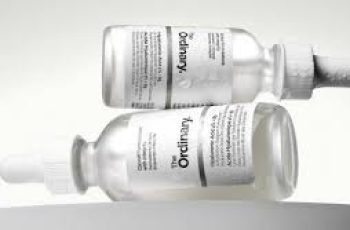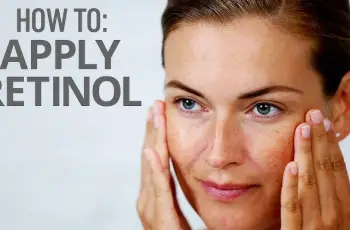
Marula Oil in Skin Care
Marula oil in skin care
Marula oil (Sclerocarya birrea) comes from a plant in the southern regions of the African continent.
It has been used in regional traditional medicine for hundreds, if not thousands of years and is making its way into foreign markets.
Its fatty acid composition is reminiscent of olive oil, but it is considered less comedogenic than olive oil. There is still much to discover about marula oil in research, but we’ve compiled what there is to know on its use in skin care today.
Find some of our favorite marula oil products and learn the science of this exciting ingredient today!
Take the Quiz
What is marula oil?
What kind of oil is marula oil?
Marula oil is derived from the nuts of the marula tree and it is primarily composed of unsaturated fats.
It also contains a notable concentration of creamy saturated fatty acids like palmitic acid.
It is a plant oil and could be considered an essential oil even though it contains lipids.
Its fatty acid composition makes it thick enough to be an occlusive, which are used in treatments like skin slugging.
Active compounds
Marula oil is made of compounds with anti-inflammatory, antimicrobial, antioxidant, and moisturizing qualities.
The most significant fatty acids in marula oil by concentration are: (2)
Oleic acid (69%)
Palmitic acid (15.3%)
Linoleic acid (9.2%)
Palmitoleic acid (4.1%)
Stearic acid (1.5%)
Benefits
Each of the active fatty acids in marula oil provides unique benefits.
Oleic acid makes small perforations on the skin which enables easier absorption of other compounds, like retinoids, into the skin.
Palmitic acid is a saturated fatty acid that gives marula oil its occlusive properties and is an emollient that helps your skin glow. This fatty acid can clog the pores of acne prone skin.
Occlusives lock moisture and other active ingredients into the skin so they don’t evaporate or drip off. In other words, they prevent transepidermal water loss.
Marula oil also has a little bit of linoleic acid in it; a soothing compound that calms redness and other kinds of inflammation. Many moisturizers rely on ingredients with a lot of linoleic acid.
The antimicrobial compounds in marula oil mean it may be useful as a preservative, or for eliminating acne causing bacteria on the skin.
Antioxidants, also found in the oil, are essential in anti-aging products alongside other anti-aging ingredients like retinoids.
Like other oils composed mainly of unsaturated fatty acids, marula oil can be used in skin lightening products for its tyrosinase inhibiting properties.
If you’d like to try marula oil in your skin care regimen, be sure to shop by your Baumann Skin Type to find the right products for you!
Take the Quiz
Side-effects of marula oil
Side effects
Marula oil only has a few possible side effects, dependent on your skin type.
The high oleic acid concentration in marula oil can be irritating to extremely dry skin types.
The palmitic fatty acids in marula oil mean it is slightly comedogenic and can cause acne on sensitive skin types.
Too much moisture on the face from overuse of occlusives can result in a change to the microbiome.
Marula oil is a possible, though uncommon allergen.
Safe
Marula oil is considered safe unless you have an allergy to it, have acne prone skin, or use it outside of your custom skin care regimen.
The EWG rating for marula oil is “1.” This means there are no commonly associated risks with the ingredient.
Tons of research is being done every year on marula oil as it breaks into foreign markets from its beginnings in southern Africa, and so far no dangers have been identified.
Is marula oil safe?
Uses
It is specifically the kernels of the marula plant that are used in the production of oil for skin care.
The rest of the plant is versatile as well, being used to feed livestock or to brew regional southern African foods and beverages. (4)
Marula oil is still fairly new in the global skin care market, so the current selection of marula products are limited and need more testing.
For those reasons, the following considerations of specific conditions are based on what we know about the ingredient’s characteristics, not based on what products are available today.
Acne
Marula oil is a good ingredient for acne treatment and prevention products.
This ingredient has a chance to clog the pores of extremely acne-prone skin types because it contains some palmitic acid, although more research needs to be done on it’s comedogenic properties.
It also has significant antimicrobial properties which eliminate acne causing bacteria on the skin.
The oleic acid in marula oil creates tiny perforations on the skin, helping other ingredients get absorbed.
Dry skin conditions
There are many hydrating and occlusive fatty acids in marula oil that make it a good ingredient in many moisturizers, however it is not good for extremely dry skin conditions because it contains oleic acid.
Depending on your skin’s sensitivity to oleic acid, marula oil might be good for your dry skin care regimen.
Eczema
Marula oil’s high concentration of oleic acid can damage the skin barrier when you have eczema even though it has a lot of hydrating fatty acids and anti-inflammatory properties.
The best oils for eczema are primarily composed of soothing linoleic fatty acids and very little (if any) oleic acid. like:
Borage seed oil
Evening primrose oil
Rosehip oil
Safflower oil
Sunflower oil
Hyperpigmentation
Because marula oil is primarily composed of unsaturated fatty acids.
It is a weak tyrosinase inhibitor and can treat many kinds of hyperpigmentation but should be used in combination with other lightening ingredients like licorice extract, or PAR-2 blockers like niacinamide.
Marula oil would likely be useful in treatments of conditions like melasma, PIH, or sun damage.
Using any skin lightener can take weeks to show results, so be patient when trying to get rid of your dark spots!
marula vs rosehip
Marula oil vs rosehip oil
Rosehip has tons of linoleic acid, marula oil has very little linoleic acid.
Rosehip has very little oleic, marula has a ton of oleic acid.
Other than that, both serve similar functions in skin care as moisturizer ingredients.
Rosehip oil is better for extremely dry skin types and conditions because of its more soothing fatty acids.
Marula oil is better as a supplementary occlusive oil in cases where oleic acid is desirable, like in acne treatments.
Rosehip oil also contains a ton of alpha-linolenic acid, which marula does not. Alpha-linolenic acid helps your body produce ceramides, which are essential for moisturizing.


